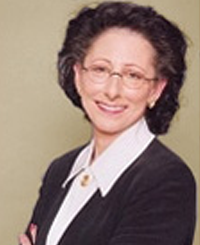WHY BOTHER VISITING MOM
A few days ago I had lunch with a friend and I was telling her about my visit the day before with my mother who has very advanced dementia and now lives in a nursing home. I was telling her how even though my mother no longer remembers who I am and that although I visit about every week or two (even though a round-trip visit takes at least a half a day) I still feel absurdly guilty that it\’s not more often.
To that my friend said, “I don\’t know why you bother visiting so often anyway and I certainly don\’t know why you feel guilty – she doesn\’t even remember that you\’ve been there.”
I know she is not being unkind or heartless in any way – that she\’s saying this to make me feel better. And the sad fact is, she\’s right – my mother\’s dementia has reached such a point that, not only doesn\’t she remember that I\’ve been there, she no longer understands the concept of daughter, and conversation while I\’m there is no longer possible.
So as heartbreaking as it is, why do I “bother”? What difference does it really make anyway? Why is it important to visit a loved one – especially one with dementia?
Would you like to extend the number of pleasant days and preserve the happy memories
There are a lot of “practical” reasons, of course.
~ I visit so that I can see how she\’s doing and see if there are any changes in her mental or physical health.
~ I visit so that I can thank the staff for all they do for my mother and so that I can meet any new staff and humanize my mother and her family. Also so that the staff can see me and know that there is someone paying attention to my Mother\’s care.
~ I visit so that I can talk with the administration about what\’s going on around the community that may affect my Mother\’s current and future care and so that I can develop relationships and open and keep open lines of communication.
~ And I visit so that so that I can see, detect, or investigate things the staff may not be able to.
For example, about a year ago I received a call that my mother, always an enthusiastic eater, had suddenly refused to eat because, according to my mother, “the food made her sick”. I went to see her the next day and stayed through lunch, hoping to figure out why, in fact, she wasn\’t eating. When I asked her, she told me the same thing – that the food made her sick – but she wasn\’t able to tell me more than that and frustratingly, I couldn\’t figure anything out either. As I headed off to talk with the nurse to discuss what to do next, I kissed my mother good bye, and she drew back and clutched her jaw. When I checked inside her mouth, I discovered that she had broken a tooth and it had become infected. So it wasn\’t the food that made her sick, it was eating the food that gave her pain – but she couldn\’t put the right words to it and the only way I knew was because I kissed her which is not something the staff is likely to do
But all the practical reasons aside, I visit for the moments. The moments when I can get my mother to focus and smile. In that moment, her whole face lights up. I know that while those moments may be fleeting, I have given her a “quality-of-life moment”. And she\’s giving me a “quality-of-life moment”, too. It makes it all worth it!!
© Copyright AgeWiseLivingTM 2001-2007 You can find information about Generational Coaching, AgeWiseLivingTM seminars and free teleseminars, and to sign up for Barbara\’s free monthly newsletter at http://www.agewiseliving.com/ or by calling toll-free (877) AGE-WISE. Barbara E. Friesner is the country\’s leading Generational Coach and expert on issues affecting seniors and their families. She is an adjunct professor at Cornell University, where she created and teaches “Seniors Housing Management” at Cornell\’s School of Hotel Administration.


